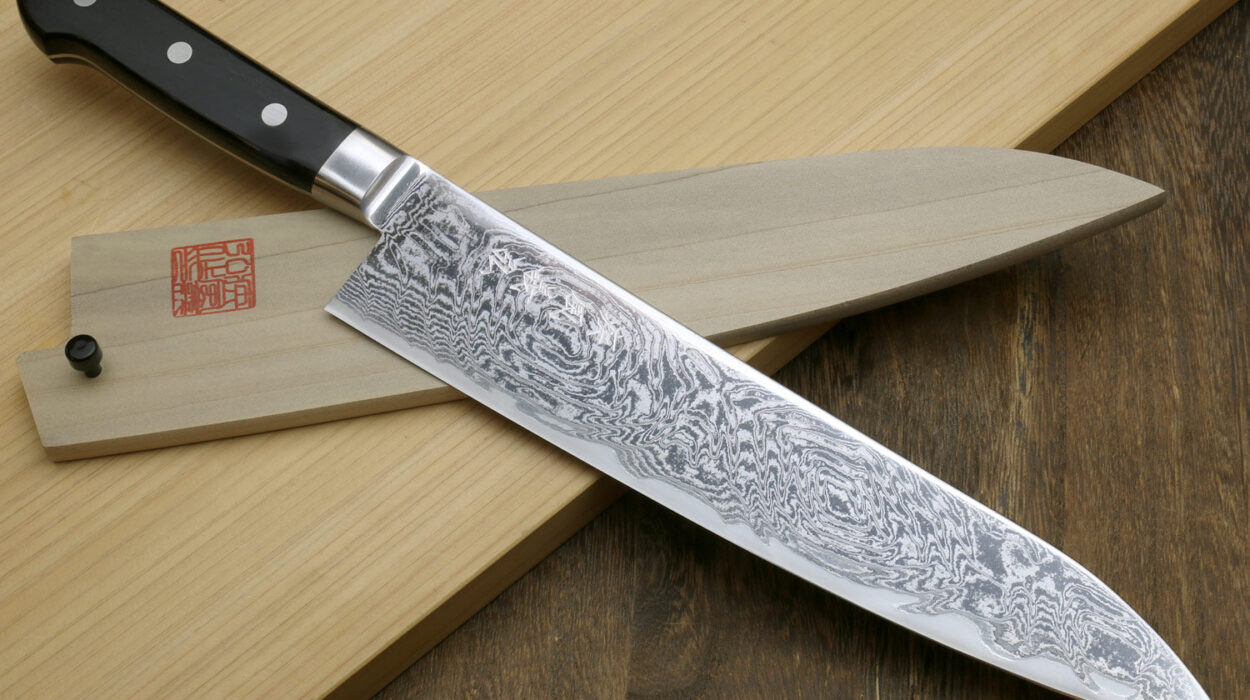When it comes to maintaining the pristine condition and longevity of your prized kitchen tools, care instructions for Damascus knives are crucial to follow. These knives, renowned for their exceptional sharpness and unique patterns, require meticulous attention. Whether youre a professional chef or an enthusiastic home cook, understanding these care guidelines is imperative to preserving the allure and functionality of your Damascus blades.

Understanding the Beauty and Utility of Damascus Knives
The allure of Damascus knives lies in their intricate patterns and remarkable cutting capabilities. The process of forging these blades involves layering steel in a manner that not only enhances their strength but also displays beautiful patterns resembling flowing water. Ensuring proper care is essential to maintaining these characteristics.
Why Proper Care Matters
Proper care of your Damascus knives is vital for several reasons. First, it ensures the knife retains its sharp edge and aesthetic appeal. Poor maintenance can lead to dullness, rust, and the deterioration of the blade. Moreover, proper care extends the life of your investment, ensuring your knife remains a trusty kitchen companion.
Cleaning Your Damascus Knife
Understanding how to properly clean your Damascus knife is the first step in its maintenance. Always wash the knife by hand using mild soap and warm water immediately after use. Avoid using abrasive sponges or dishwashers, as these can damage the blade.
Drying the Blade Thoroughly
After washing, it is critical to dry the knife immediately with a soft, dry cloth. This prevents any moisture from causing rust spots to form on the blade. Never leave your knife to air dry.
Sharpening and Honing Techniques
Proper sharpening and honing are essential to keep your Damascus knife in top condition. Regular honing realigns the blade edge, while sharpening removes metal to create a new, sharp edge. Use a whetstone for sharpening and a honing rod for regular edge maintenance.
Finding the Right Tools
Invest in quality honing and sharpening tools specifically designed for Damascus steel. This ensures your knife receives the care it deserves without compromising its structure or beauty.
Storage Solutions for Damascus Knives
The way you store your Damascus knife plays a critical role in its longevity. Opt for magnetic strips or knife blocks that hold the knife securely without causing damage to its edge.
Avoiding Contact with Other Utensils
Ensure that the blade’s edge doesn’t come into contact with other utensils. This prevents nicks and maintains the blades precision.
Preventing Rust and Corrosion
Applying a thin coat of mineral oil on the blade after cleaning and drying helps in preventing rust and corrosion. This oil acts as a barrier against moisture and keeps your knife in optimal condition.
Regular Maintenance Schedules
Establish a regular maintenance schedule for oiling and sharpening to ensure your knife remains a reliable kitchen tool. Such routines prevent neglect and keep the knife in excellent condition.
Understanding Wear and Tear
Despite careful maintenance, regular use of your Damascus knife will eventually show signs of wear. Recognizing this normal aging process is part of using high-quality kitchen tools.
When to Seek Professional Help
If significant damage occurs or if the knife loses its pattern and sharpness considerably, consulting a professional knife sharpener may be necessary. They can restore the blade without compromising its quality.
Embrace the Tradition
Owning a Damascus knife is more than just possessing a kitchen tool; its embracing a timeless tradition of craftsmanship. Proper care ensures these treasures remain functional and beautiful, ready to be passed down through generations.
Common Mistakes to Avoid
Avoid using your Damascus knife for tasks it wasnt designed for, such as cutting through bones or performing heavy-duty kitchen jobs. Misuse can lead to irreparable damage.
Learning from Other Enthusiasts
Joining online forums or communities of Damascus knife enthusiasts can offer insights and tips from fellow knife owners who share the same passion and appreciation for these exquisite tools.

FAQs
How often should I sharpen my Damascus knife?
Depending on usage, sharpening may be needed quarterly. Regular honing, however, should be done every few uses to maintain the edge.
Is it okay to put my Damascus knife in the dishwasher?
No, dishwashers can be too harsh on Damascus steel and may cause long-term damage to the blade.
Why is it important to dry the knife immediately after washing?
Immediate drying prevents rust and maintains the blades integrity, ensuring it stays in excellent condition for years to come.
For more in-depth information and resources, you might find the history of Damascus steel fascinating, offering a deeper appreciation for these unique knives.
This article contains affiliate links. We may earn a commission at no extra cost to you.


